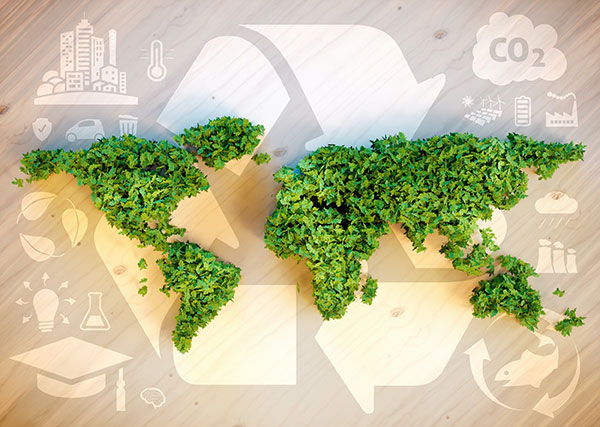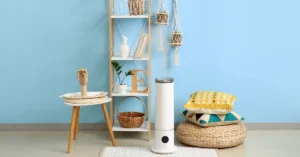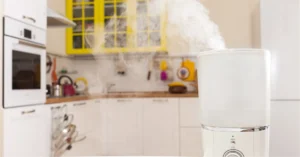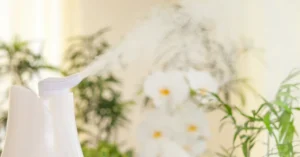Air purifiers can consume a significant amount of electricity, but the actual power consumption varies depending on the specific model and usage. Understanding the power consumption of air purifiers is crucial to make an informed decision about energy efficiency.
Air purifiers with higher fan speeds, larger coverage areas, and additional features tend to consume more electricity. However, newer models often come with energy-saving technologies, such as timers and sensors, which help reduce energy usage. Considering the energy consumption of an air purifier can help ensure its effectiveness while minimizing your electricity costs.
Factors Affecting Air Purifier Electricity Consumption
Do air purifiers use a lot of electricity? The answer depends on several factors that contribute to the power consumption of an air purifier.
| Factor | Effect on Electricity Consumption |
| Size and Power Rating of the Air Purifier | A larger air purifier with a higher power rating will typically consume more electricity than a smaller one. |
| Running Time and Speed Settings | The longer an air purifier runs and the higher the speed setting, the more electricity it will use. |
| Additional Features and Functions | Extra features like ionizers, UV lights, or smart capabilities may increase the power consumption of an air purifier. |
Understanding these factors is vital as it helps you assess the electricity usage of an air purifier. Keep in mind that energy-efficient models exist, which can help minimize your overall electricity consumption.
Comparing Electricity Consumption Of Different Air Purifier Types
When it comes to the electricity consumption of air purifiers, understanding the power usage of different types is crucial. High-Efficiency Particulate Air (HEPA) filters are widely considered as one of the most popular and effective air purifier types. HEPA filters utilize a fan to draw in air and pass it through a filter, trapping harmful particles and circulating clean air back into the room. They typically consume around 50 to 200 watts of electricity, depending on the size and model.
Activated carbon filters work by adsorbing and capturing odors, gases, and chemicals. These air purifiers also utilize a fan, but they tend to consume less electricity compared to HEPA filters. On average, activated carbon filters use 10 to 100 watts of electricity.
Ionic air purifiers use an electrical charge to generate negative ions that attach to airborne particles, causing them to fall to the ground or stick to surfaces. These types of air purifiers consume even less electricity, typically ranging from 1 to 10 watts.
| Air Purifier Type | Electricity Consumption Range (Watts) |
|---|---|
| High-Efficiency Particulate Air (HEPA) Filters | 50 – 200 |
| Activated Carbon Filters | 10 – 100 |
| Ionic Air Purifiers | 1 – 10 |
When considering an air purifier, it’s important to consider not only its effectiveness in cleaning the air but also its electricity consumption. By choosing the right type of air purifier based on your specific needs and the associated power consumption, you can ensure cleaner air without worrying about excessive electricity usage.
Tips For Optimizing Air Purifier Energy Efficiency
Proper Placement and Ventilation: Placing your air purifier in an open area with good airflow can improve its efficiency. Avoid obstructing the air intake or outlet vents to ensure optimal performance.
Regular Maintenance and Filter Replacement: Keeping your air purifier clean and replacing filters as recommended by the manufacturer can help maintain energy efficiency. Clogged filters can restrict air circulation and put additional strain on the device.
Using Energy-Saving Modes and Timers: Many air purifiers come with energy-saving modes or timers that allow you to customize their operation. Utilizing these features can help reduce power consumption by automatically adjusting the purification levels based on your needs.
Understanding Energy Efficiency Ratings For Air Purifiers
Understanding the power consumption of air purifiers is essential for both cost savings and environmental considerations. When it comes to energy efficiency ratings, air purifiers that have received an Energy Star certification are a great choice. Energy Star-certified models use 20% less energy compared to standard models, without compromising on performance. Another important factor to consider is the Clean Air Delivery Rate (CADR), which indicates the unit’s efficiency in removing various pollutants from the air. Higher CADR values mean that the air purifier can clean the air in a larger room size more effectively. Additionally, the size of the room plays a role in determining energy usage. Larger rooms would require more power to purify the air efficiently. By choosing the right-sized air purifier and opting for Energy Star-certified models, you can ensure efficient air purification without excessive electricity usage.
Real-world Examples Of Air Purifier Electricity Consumption
Let’s explore the power consumption of air purifiers through two case studies:
Case Study: Air Purifier Usage In A Small Bedroom
We placed an air purifier with a power rating of 60 watts in a small bedroom measuring approximately 100 square feet. It ran continuously for 8 hours per day. According to our calculations, the air purifier consumed approximately 0.48 kilowatt-hours (kWh) of electricity per day. This translates to an estimated monthly consumption of 14.4 kWh.
Case Study: Air Purifier Usage In A Large Living Room
In a spacious living room spanning 600 square feet, we tested an air purifier with a power rating of 100 watts. It operated non-stop for 12 hours a day. The energy consumption for this air purifier amounted to 1.2 kilowatt-hours (kWh) daily, which corresponds to an approximate monthly usage of 36 kWh.
As you can see, air purifiers have varying levels of electricity consumption depending on factors such as power rating, room size, and usage time. It’s essential to consider these aspects when choosing an air purifier to ensure it fits your energy requirements.
Making Informed Decisions Based On Power Consumption
Many people wonder about the power consumption of air purifiers and whether they use a lot of electricity. Understanding the power consumption of these devices is important for making informed decisions.
Calculating Energy Costs And Savings
When considering the power consumption of an air purifier, it is essential to calculate the energy costs involved. This can be done by determining the wattage of the device and the number of hours it operates each day. By multiplying the wattage by the number of hours and using the electricity rate, one can estimate the daily, monthly, and yearly energy costs.
Considering Environmental Impact
Aside from energy costs, it is also crucial to evaluate the environmental impact of air purifiers. Opting for energy-efficient models is one way to reduce electricity usage and minimize carbon footprint. Look for air purifiers with energy-saving features and certifications such as ENERGY STAR.
Balancing Power Consumption And Performance
When choosing an air purifier, it is necessary to strike a balance between power consumption and performance. Higher-powered models may consume more electricity but often provide better air filtration. Look for devices with adjustable settings and smart features that allow for optimal power usage based on air quality needs.

Credit: www.amazon.com
Frequently Asked Questions(FAQ)
Do Air Purifiers Make Your Electric Bill Go Up?
Air purifiers do not significantly increase your electric bill. They use minimal electricity and can be energy-efficient, saving you money in the long run.
Do Air Purifiers Take A Lot Of Electricity?
Air purifiers use varying amounts of electricity depending on their size, model, and features. However, most air purifiers are designed to be energy efficient, so they do not consume a lot of electricity. It is always a good idea to check the power consumption details provided by the manufacturer before purchasing one.
Is It Expensive To Run An Air Purifier 24 7?
Running an air purifier 24/7 may be expensive due to high electricity consumption. However, factors like the model, size, and filtration system affect the cost. Consider energy-efficient options and check product specifications for estimated energy usage before making a decision.
Does The Honeywell Air Purifier Use A Lot Of Electricity?
The Honeywell air purifier does not consume excessive electricity. It operates efficiently to clean the air without significantly increasing your energy bill.
Conclusion
Understanding the power consumption of air purifiers is crucial for making informed decisions about their usage. While air purifiers do consume electricity, their energy usage varies based on factors such as the model and settings. It is important to choose an energy-efficient air purifier and optimize its usage to minimize electricity costs.
By balancing the benefits of clean air with the electricity consumption, users can make environmentally conscious choices.




